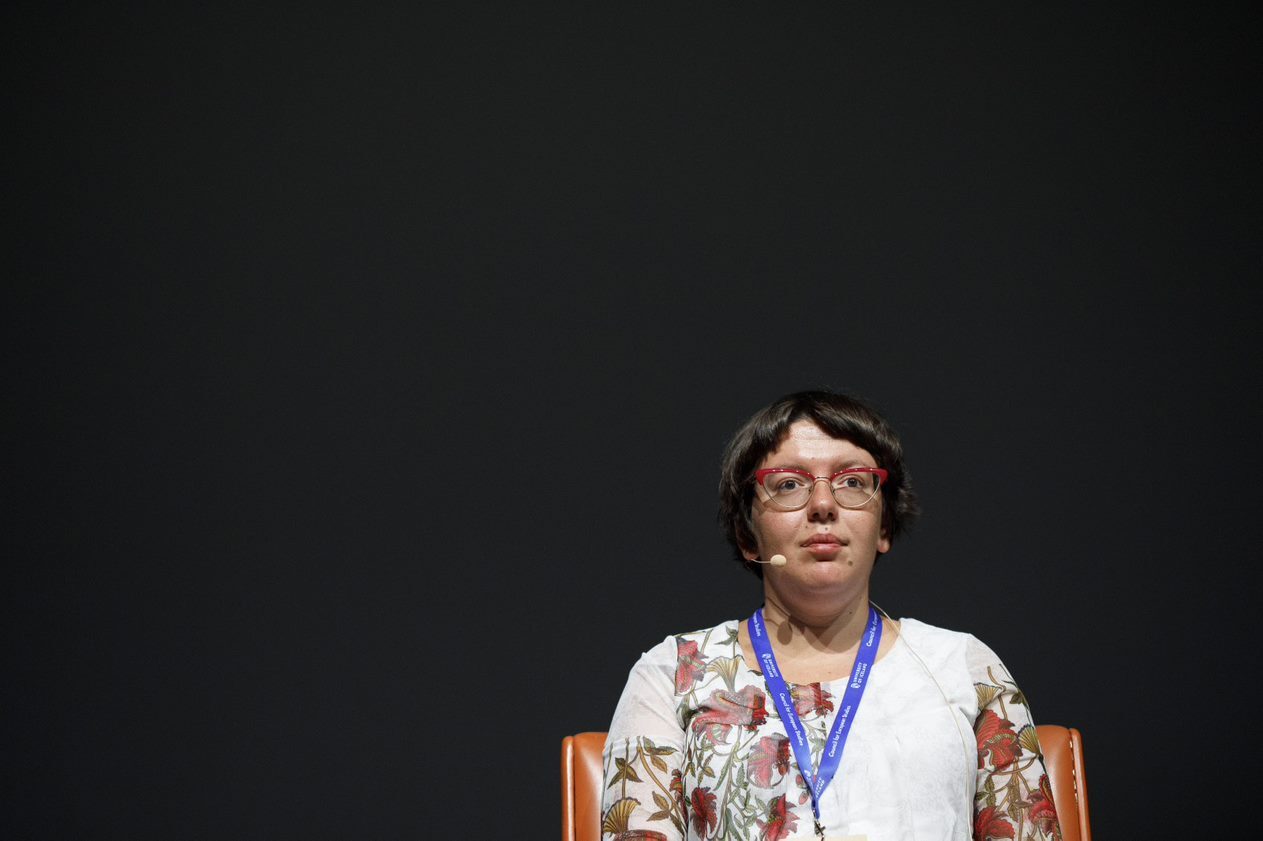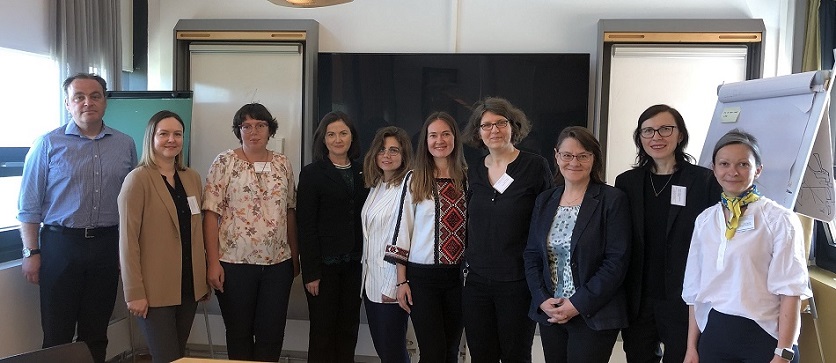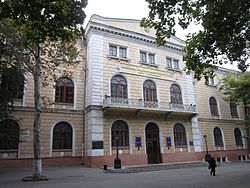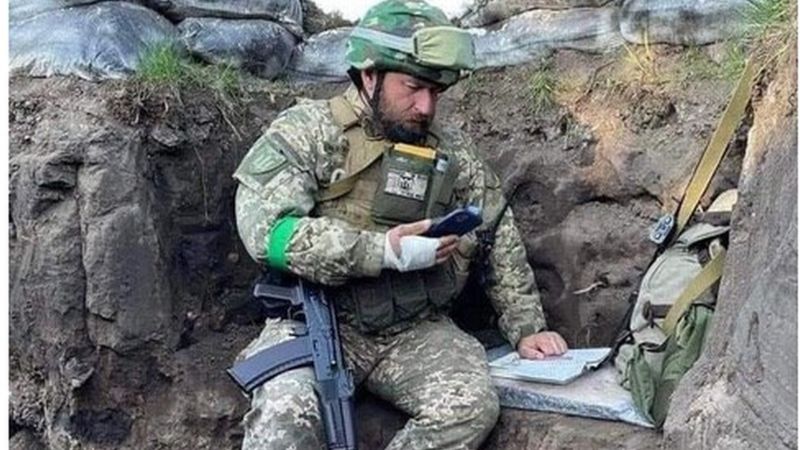On 2-3 August 2024, project Post-Doc Maryna Rabinovych took part in the networking workshop, titled “Legal Framework and Knowledge Exchange with Ukraine –Knowledge Transfer in Times of Transition”. The event was co-organized by the German Academic Exchange Service (DAAD) and the Greenberg Traurig law firm in Berlin. Maryna’s presentation addressed the challenges of democratic institution-building amidst the war and in post-war Ukraine.
Project Team at the 12th ECPR SGEU conference at the Universidade NOVA in Lisbon
Between 19 and 21 June 2024, the Project Team took part at the 12th conference of the Standing Group on the European Union under the European Consortium for Political Research (ECPR) at the Project Team at the 12th ECPR SGEU conference at the Universidade NOVA in Lisbon, Portugal.
At the conference, the Project Team presented the paper, titled ” Political conditionality as EU foreign policy and crisis management tool. The case of EU wartime political conditionality vis-à-vis Ukraine”. The paper discusses the interplay between the EU’s conditionality and crisis management policies in Ukraine between 2022 and 2024, showcasing synergies and potential conflicts between these policies. Following a round of revision based on conference participants’ comments, the paper was submitted to the Journal of European Integration (JEI).
Project Post-Doc Maryna Rabinovych with a talk on Ukraine’s future in a democratic and peaceful Europe in Lyngdal
On 8 May 2024, Project Post-Doc Maryna Rabinovych gave a talk, titled “Ukraine in a democratic and peaceful Europe”, on the occasion of the Day and Remembrance of Victory in Lyngdal commune. In the talk, she stressed the importance of Ukraine’s security for the maintenance and strengthening the European security order, as well as the importance of the EU’s enlargement to the East from the geopolitical and security perspectives.
The event was organized by the NGO “Support to the People of Ukraine”.

New publications in September!

In September 2023, Project Team members got two papers published in international peer-reviewed journals:
- Maryna Rabinovych and Anne Pintsch (2023) The Eastern Partnership Initiative: Challenges of Assessing Performance and New Geopolitical Realities. International Politics. Online First.
- Maryna Rabinovych (2023) The Eastern Neighbourhood and EU Security Policy: A Differentiated Integration Perspective. European Foreign Affairs Review 28(3), pp.223-242.
The former joint paper is the Project Team’s conclusion for a Special Issue on assessing EU policies’ performance, co-edited by Dorina Baltag, Iulian Romanyshyn and Maryna Rabinovych that will be out as a hard copy in early 2024. The aim of the Special Issue is to discuss the theoretical and methodological challenges of assessing the relevance, coherence, effectiveness, impact and resilience of EU policies towards all countries of the initial Eastern Partnership initiative, including Belarus. The latter paper has a narrower geographical and thematic scope, exploring how Ukraine, Moldova and Georgia can be integrated into EU’s evolving security and defense architecture based on existing mechanisms of cooperation between the EU, Member States and third countries in this realm.
Source for image: ColourBox
Two papers presented at international conferences in September
In September 2023, Project Post-Doc Maryna Rabinovych presented two draft papers at international conferences.

Her presentation at the General Conference of the European Consortium for Political Research (ECPR, Prague, 4-8 September 2023) was titled “EU External Differentiated Integration as a Crisis Response and Post-War Recovery Tool? The Case of EU Response to Russia’s War against Ukraine”. It concentrated on explaining how cooperation and integration structures that had existed between the EU and Ukraine prior to Russia’s full-scale invasion are contributing to the EU’s current crisis response and planned post-war recovery.

The post-doc also took part at the international conference “Core, Peripheral, and Supranational Correlates of the Rule of Law: Emerging Synergies and Tensions”, conducted by the West University of Timișoara (Romania, 29-30 September 2023). The online presentation was titled “EU Enlargement Policy Goes East: Historical and Comparative Takes on the EU’s Rule of Law Conditionality vis-à-vis Ukraine”, It aimed to zoom in on the design of conditionality the EU has applied towards Ukraine since the latter got a candidate country status.
Following the incorporation of comments, papers will be submitted to academic journals.
Sources for images: ECPR, https://nec.ro/events/core-peripheral-and-supranational-correlates-of-the-rule-of-law-emerging-synergies-and-tensions/
Project Post-Doc Maryna Rabinovych participates in the Keynote Roundtable in Reykjavik

Between 27 and 29 June 2023, Project Post-Doc Maryna Rabinovych took part in the 29th International Conference of Europeanists, organized by the Council of the European Studies in Reykjavik, Iceland. Except for presenting the project work-in-progress, Maryna was invited to contribute to the Keynote Roundtable “Ukraine’s Past, Present, and Future: Utopias and Dystopias” with her insights into Ukraine’s relations with the EU and NATO. Other Roundtable participants were Prof. Milada Anna Vachudova (University of North Carolina Chapel Hill), Prof. Jón Ólafsson (University of Iceland) and Marina Shevtsova (KU Leuven and the University of Ljubljana), and it was moderated by the journalist and practitioner Urður Gunnarsdottir.
Following brief introductory contributions, roundtable participants were asked to reflect on utopias and dystopias in Ukraine’s past, present and future, especially in the context of Russia’s war against Ukraine. They also got numerous questions from the audience pertaining, inter alia, to Ukraine’s European integration, the candidate country status and the prospect of enlargement negotiations.
Acting Ambassador of Ukraine in Norway Dr. Liliia Honcharevych Gave a Keynote at the Project Book Workshop at the University of Agder

On 8 June 2023 Dr. Liliia Honcharevych, Acting Ambassador of Ukraine (Chargé d`affaires) in the Kingdom of Norway, gave a keynote address at the book workshop “Ukraine: A New EU Member State? From “Integration without Membership” to “Integration through War”, held at the University of Agder. The workshop was organized under the project “Lowering the Bar? Compliance Negotiations and the EU-Ukraine Association Agreement” funded by the Research Council of Norway (2021-2024).
In her keynote address, Dr. Honcharevych zoomed in on the state-of-play and challenges of Ukraine’s European and Euro-Atlantic integration and post-war rebuilding. She made a special emphasis on the role of Norway and the Norwegian-Ukrainian bilateral cooperation in these respects, for instance, through Norway’s multiannual Nansen Support Programme for Ukraine. The Acting Ambassador and workshop participants also discussed the ways Norway can potentially contribute to addressing Ukraine’s most urgent needs, such as those, stemming from Russia’s destruction of the Kakhovka dam on 6 June 2023. This issue was overtaken at Dr. Honcharevych’s subsequent meeting with UiA colleagues from the Centre for Integrated Emergency Management.
Project book workshop held at the University of Agder
On 8-9 June, the University of Agder hosted an international workshop, titled “Ukraine: A New EU Member State? From “Integration without Membership” to “Integration through War”. The Project Team organized the workshop as a step towards preparing the eponymous edited volume to be published with an international publishing house.
The aim of the workshop and the prospective book is to take stock of the dynamics of Ukraine’s thorny European integration path and addresses key challenges stemming from Ukraine’s unique situation of acquiring EU candidate country status amid the war with Russia. Thus, in their presentations workshop participants addressed an array of intriguing questions, such as: How can the reconstruction of Ukraine be coupled with EU accession negotiations? What can be done to avoid the accession negotiations with Ukraine to last decades like those with Turkey or the Western Balkans? How can the EU and Ukraine cooperate to strengthen regional security amid Russia’s assertiveness? In doing so, presenters brought together political science and legal perspectives, single-case, comparative and large-n research designs, and knowledge from different areas, including democratization, human rights, trade, environment and education.
As a follow-up to the workshop, the Project Team is currently consolidating individual feedback to presenters, who will continue working on their contributions in summer 2023. Detailed account of presenters and their contributions is available in the attached programme.
Project Post-Doc Maryna Rabinovych Gives a Talk at Odesa National University

On 11 May 2023, Project Post-Doc Maryna Rabinovych gave an online talk, titled “EU geopolitical awakening: progress and challenges”, for bachelor students of the Law and Economics Faculty of the Odesa National University in Ukraine. The talk explained the concept of EU geopolitical awakening and its reflections in various EU policies, also with an account of the implications of Russia’s war against Ukraine. Furthermore, Maryna zoomed in on various challenges, encountered by the EU’s geopolitical awakening, such as the complexity of decision-making procedures in EU foreign policies, third countries’ influence and difficulties to achieve coherence between the EU policy objectives in various domains. Examples from trade and security policies were utilized to demonstrate how challenging it may be for the Union to reconcile various policy objectives. The talk was followed by questions from the audience.
Project Post-Doctoral Researcher Maryna Rabinovych contributes to the Democracy Week in Kristiansand

On 3 May 2023, project post-doc Maryna Rabinovych gave a talk, titled “Education and resistance: Ukrainian universities at war” at the event “Higher Education and Preserving Democracy” in terms of the Democracy Week in Kristiansand. Democracy Week is organized in Kristiansand on a yearly basis in connection with the Europe Conference in Kristiansand on the Europe Day on 5 March. This year many events of the Democracy week explore negative implications Russia’s war against Ukraine has had for democracy, human rights and the rule of law in Ukraine and Europe, more broadly, and the ways European governments and civil society can address them.
In her talk, Maryna explained the challenges Ukrainian students, lecturers and researchers face at the government-controlled territories of Ukraine, the territories, currently occupied by Russia, as well as in European countries. She also gave an overview of various international and European initiatives, aimed at helping Ukrainian students and academics such as the Scholars at Risk initiative and the “Invisible University for Ukraine” initiative by the Central European University (CEU), and their significance for sustaining democracy in Ukraine and Europe. The talk was well-received by the audience, and the presenter got numerous questions regarding the structure and operation of Ukrainian universities at the wartime.